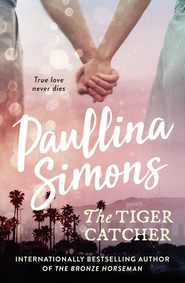По всем вопросам обращайтесь на: info@litportal.ru
(©) 2003-2024.
✖
Tatiana and Alexander
Настройки чтения
Размер шрифта
Высота строк
Поля
Bending reminded him of his sharply throbbing back, which, as the day wore on, felt as if it were swelling and expanding. He debated giving himself a morphine shot, then decided against it. He didn’t want to numb himself to what was about to come. He did chew one of the sulfa tablets, bitter and acidic, without crushing it, without asking for water. He just put it into his mouth and chewed it, shuddering with the swallow. Alexander sat quietly on the floor, realizing they couldn’t see him because it was so dark in the cell, and closed his eyes. Or maybe they had remained open; it was hard to tell. It didn’t matter in the end. He sat and waited. Had the day gone? Had it been one day? He wanted a smoke. He remained motionless. Had Sayers and Tatiana left? Had Tania allowed herself to be convinced, to be goaded, to be comforted? Had she taken her things and got into Sayers’s truck? Had they fled Morozovo? What Alexander wouldn’t give for a word. He was very afraid that Dr. Sayers would break down, not convince her, and she would still be here. He tried to feel for her up close, sensing nothing but the cold. If she were still in Morozovo, he knew that once they started interrogating him for real and once they knew of her, he would be finished. He couldn’t breathe thinking of her still so close. He needed to stall the NKVD for a little while longer until he knew for sure she was out. The sooner she left, the sooner he could give himself over to the state.
She seemed very close. He could almost reach for his ruck and feel for her dress, and see her, white dress with red roses, hair long and flowing, teeth gleaming. She was very close. He didn’t have to touch the dress. He didn’t need comfort. She needed comfort. She needed him so much, how was she going to get through this without him?
How was she going to get through losing him without him?
Alexander needed to think about something else.
Soon he didn’t have to.
“Idiot!” he heard from the outside. “How do you plan to observe the prisoner if he has no light? He could have killed himself in there for all you know. Stupid moron!”
The door opened and a man walked in with a kerosene lamp. “You need to be illuminated at all times,” said the man. It was Mitterand.
“When is someone going to tell me what’s going on around here?” said Alexander.
“You are not to question us!” Mitterand shouted. “You are not a major anymore. You are nothing. You will sit and wait until we are ready for you.”
That seemed to be the sole purpose of Mitterand’s visit—to yell at Alexander. After Mitterand left, the guard brought Alexander some water and three-quarters of a kilo of bread. Alexander ate the bread, drank the water, and then felt around the floor for a drain hole. He did not want to be illuminated. He also did not want to compete for oxygen with a kerosene lamp. Opening the bottom of the lamp, he poured the kerosene down the drain, leaving just a little left at the bottom that burned out in ten minutes. The guard opened the door and shouted, “Why is the lamp out?”
“Ran out of kerosene,” Alexander said pleasantly. “Have you got more?”
The guard did not have more.
“That’s too bad,” Alexander said.
He slept in the darkness, in a sitting position, in the corner, with his head leaning against the wall. When he woke up it was still pitch black. He didn’t know for sure he had woken up. He dreamed he had opened his eyes, and it was black. He dreamed of Tatiana, and when he woke up, he thought of Tatiana. Dreams and reality were mingled. Alexander didn’t know where the nightmare ended and real life began. He dreamed he closed his eyes and slept.
He felt disconnected from himself, from Morozovo—from the hospital, from his life—and he felt strangely comforted in his detachment. He was cold. That attached him back to his cramped and uncomfortable body. He preferred it the other way. The wound in his back was merciless. He grit his teeth and blinked away the darkness.
Harold and Jane Barrington, 1933
Hitler had become the Chancellor of Germany. President Von Hindenburg had “stepped down.” Alexander felt an inexplicable stirring in the air of something ominous he could not quite put his finger on. He had long stopped hoping for more food, for new shoes, for a warmer winter coat. But in the summer he didn’t need a coat. The Barringtons were spending July at their dacha in Krasnaya Polyana and that was good. They rented two rooms from a Lithuanian widow and her drunken son.
One afternoon, after a picnic of hard-boiled eggs and tomatoes and a little bologna, and vodka for his mother (“Mom, since when do you drink vodka?”), Alexander was lying in the hammock reading when he heard someone behind him in the woods. When he languidly turned his head, he saw his mother and father. They were near the clearing by the lake, throwing pebbles into the water, chatting softly. Alexander was not used to his parents talking quietly, so strident had their relationship become with their conflicting needs and anxieties. Normally he would have looked back into his book. But this quiet chatter, this convivial closeness—he didn’t know what to make of it. Harold took the pebbles out of Jane’s hands and brought her to stand close to him. One of his hands was around her waist. He was holding her other hand. And then he kissed her and they began to dance. They waltzed slowly in the clearing, and Alexander heard his father singing—singing!
As they continued to waltz, their bodies spinning in a conjugal embrace, and as Alexander watched his mother and father in a moment they had never had before in front of him and would never have again, he was filled with a happiness and longing he could neither define nor express.
They drew away from one another, looked at him, and smiled.
Uncertainly he smiled back, embarrassed but unable to look away.
They came over to his hammock. His father’s arm was still around his mother.
“It’s our anniversary today, Alexander.”
“Your father is singing the anniversary song to me,” said Jane. “We danced to that song the day we were wed thirty-one years ago. I was nineteen.” She smiled at Harold.
“Are you going to stay in the hammock, son? Read for a while?”
“I’m not going anywhere.”
“Good,” said Harold, taking Jane by the hand and heading with her toward the house.
Alexander looked into his book, but after an hour of turning the pages, he could not see or remember a single word of what he had just read.
Winter came too soon. And during the winter on Thursday evenings after dinner Harold would take Alexander by the hand and walk with him in the cold to Arbat—the Moscow street vendors’ mall of musicians and writers and poets and troubadours and old ladies selling chachkas from the days of the Tsar. Near Arbat, in a small, smoke-filled two-room apartment, a group of foreigners and Soviet men, all devout communists, would meet for two hours from eight to ten to drink, smoke and discuss how to make communism work better in the Soviet Union, how to make the classless society arrive faster at their doorstep, a society in which there was no need for the state, for police, for an army because all grounds for conflict had been removed.
“Marx said the only conflict is economic conflict between classes. Once it’s gone, the need for police would be gone. Citizens, what are we waiting for? Is it taking longer than we anticipated?” That was Harold.
Even Alexander chipped in, remembering something he had read: “‘While the state exists, there can be no freedom. When there will be freedom, there will be no state.’” Harold smiled approvingly at his son quoting Lenin.
At the meetings Alexander made friends with sixty-seven-year-old Slavan, a withered, gray man who seemed to have wrinkles even on his scalp, but his eyes were small blue alert stars, and his mouth was always fixed in a sardonic smile. He said little, but Alexander liked the look of his ironic expression and the bit of warmth that came from him whenever he looked Alexander’s way.
After two years of meetings, Harold and fifteen others were called into the Party regional headquarters or Obkom—Oblastnyi Kommitet—and asked if the focus of their future meetings could perhaps be something other than how to make communism work better in Russia since that implied it wasn’t working quite so well. After hearing about it from his father, Alexander asked how the Party knew what a group of fifteen drunk men talked about once a week on Thursdays in a city of five million people. Harold said, himself quoting Lenin, “‘It is true that liberty is precious. So precious that it must be rationed.’ They obviously have ways of finding out what we talk about. Perhaps it’s that Slavan. I’d stop talking to him if I were you.”
“It’s not him, Dad.”
After that the group still met on Thursdays, but now they read aloud from Lenin’s What Is To Be Done? or from Rosa Luxembourg’s pamphlets, or from Marx’s Communist Manifesto.
Harold often brought up the approval of American communist supporters to show that Soviet communism was slowly being embraced internationally and that it was all just a matter of time. “Look what Isadora Duncan said about Lenin before she died,” Harold would say and quote: “‘Others loved themselves, money, theories, power. Lenin loved his fellow men … Lenin was God, as Christ was God, because God is love, and Christ and Lenin were all love.’”
Alexander smiled approvingly at his father.
During one full night, many hours of it, fifteen men, except for a silent and smiling Slavan, tried to explain to a fourteen-year-old Alexander the meaning of “value subtraction.” How an item—say shoes—could cost less after it was made than the sum total value of its labor and material parts. “What don’t you understand?” yelled a frustrated communist who was an engineer by day.
“The part of how you make money selling shoes.”
“Who said anything about making money? Haven’t you read the Communist Manifesto?”
“Yes.”
“Don’t you remember what Marx said? The difference between what the factory pays the worker to make the shoes and what the shoes actually cost is capitalist theft and exploitation of the proletariat. That’s what communism is trying to eradicate. Have you not been paying attention?”
“I have, but value subtraction is not just eliminating profit,” Alexander said. “Value subtraction means it’s actually costing more to make the shoes than the shoes can be sold for. Who is going to pay the difference?”
“The state.”
“Where is the state going to find the money?”
“The state will temporarily pay the workers less to make the shoes.”
Alexander was quiet. “So in a period of flagrant worldwide inflation, the Soviet Union is going to pay the workers less? How much less?”
“Less, that’s all.”
“And how are we going to buy the shoes?”
“Temporarily we’re not. We’ll have to wear last year’s shoes. Until the state gets on its feet.” The engineer smiled.











